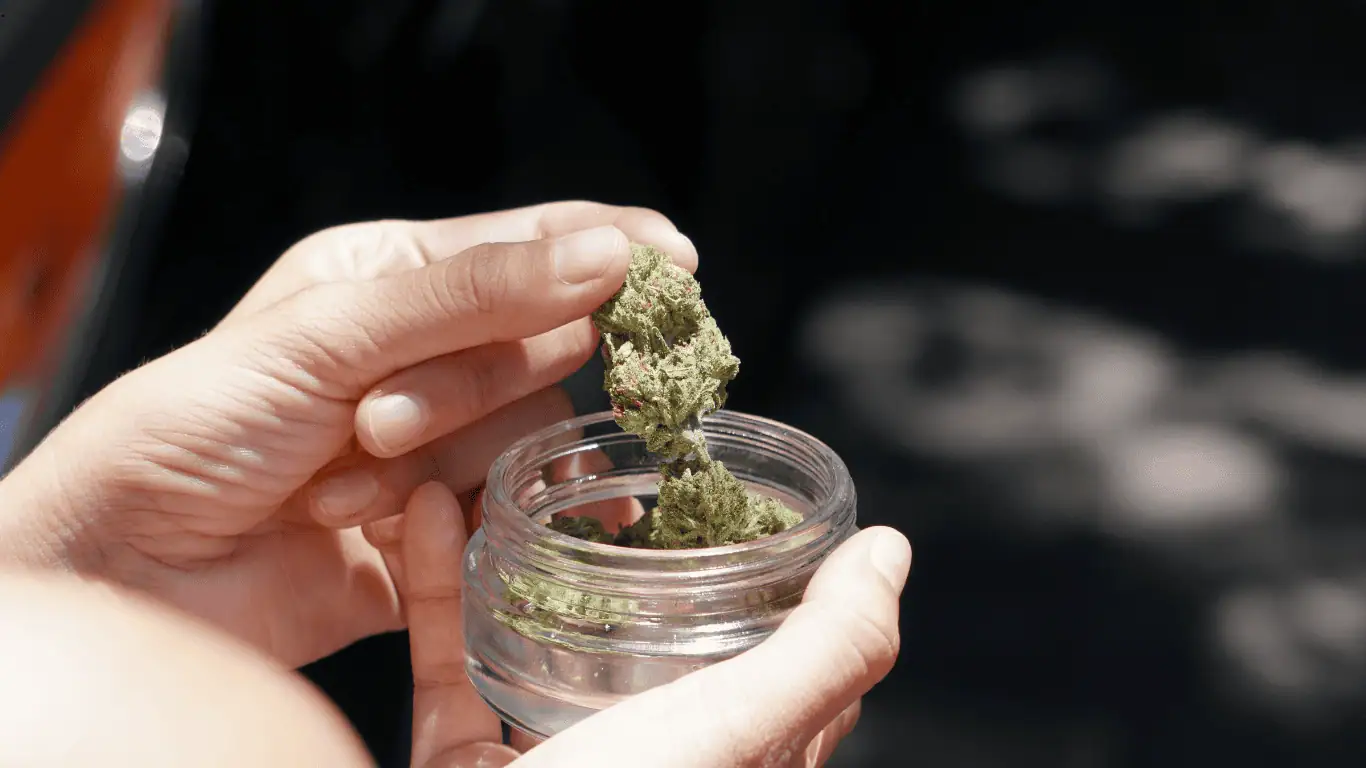The cannabis sativa plant has been used for centuries, valued for both its medicinal properties and recreational effects. Today, with the rise of medical marijuana and widespread legalization, smoking cannabis has become more socially accepted than ever. However, increased accessibility doesn’t mean marijuana is without risks.
For many, cannabis use is occasional and controlled, but for others, it can become a dependence that affects mental health, cognitive function, and overall well-being. The impact of cannabis use disorder varies from person to person, influenced by frequency of use, THC potency, genetic predisposition, and existing mental health conditions. While some experience relaxation or symptom relief, long-term or heavy use can contribute to cognitive decline, emotional instability, and drug abuse patterns that are difficult to break.
At Right Path Rehab, we understand that marijuana dependency doesn’t happen overnight. What starts as occasional use can escalate into a reliance that affects motivation, memory, emotional resilience, and personal relationships. Many individuals don’t recognize the warning signs until they experience withdrawal symptoms, an increased tolerance, or difficulty functioning without it.
If you or someone you love is struggling with their relationship with the cannabis plant, know that you’re not alone. Understanding the full effects of smoking cannabis—both short-term and long-term—is an essential step in making informed choices. Whether you’re seeking guidance, support, or treatment for cannabis dependency, Right Path Rehab is here to help.
How Weed Affects the Brain: The Science Behind the High
The cannabis plant contains over 100 cannabinoids, but the primary psychoactive compound responsible for its effects is THC (tetrahydrocannabinol). When smoking marijuana, using edibles, or consuming cannabis in any form, THC enters the bloodstream and travels to the brain, where it interacts with the body’s endocannabinoid system—a complex network that regulates mood, memory, pain, appetite, and brain function.
This interaction triggers a range of effects, some of which may feel pleasant in the moment but can have long-term consequences on mental health, cognitive function, and overall well-being.

Short-Term Effects of Cannabis on the Brain
When THC—the psychoactive compound in cannabis—binds to the brain’s cannabinoid receptors, it disrupts normal neurological function. This can result in both the desired high and a range of unintended harmful effects, especially for young adults whose brains are still developing. Understanding these health effects of marijuana use is essential for making informed choices.
Common Short-Term Effects Include:
- Euphoria and relaxation – Many people report a temporary mood boost and a calming effect. However, these sensations are often short-lived and may mask underlying anxiety or stress.
- Altered sensory perception – THC can heighten how users experience colors, sounds, and time. For some, this is pleasurable; for others, it can be disorienting.
- Memory impairment – THC affects the hippocampus, the region of the brain responsible for memory and learning. This can lead to forgetfulness, difficulty concentrating, and impaired short-term recall.
- Decreased coordination and reaction time – Cannabis use may delay reflexes and slow motor function, increasing the risk of accidents—especially when driving or using heavy machinery. This is particularly concerning when cannabis is combined with other substances like alcohol.
- Paranoia and anxiety – While many associate cannabis with relaxation, high-THC strains can cause acute anxiety, panic attacks, or even hallucinations, especially in individuals predisposed to mental health conditions.
- Increased heart rate and blood pressure – Smoking cannabis may elevate cardiovascular activity, which poses increased risks for those with existing heart disease or related medical conditions.
Short-term cannabis use may appear harmless to some, but repeated exposure can lead to long-term consequences—particularly in young adulthood, when the brain is still maturing. Moreover, in cases like pregnancy, cannabis may negatively affect a developing baby, raising serious public health concerns.
Although marijuana use is sometimes used to manage neuropathic pain or symptoms related to multiple sclerosis, its risks—especially for long-term users—should be weighed carefully alongside its potential benefits.
Long-Term Whole Body Effects of Cannabis on Brain Function and Mental Health
Over time, like other psychoactive drugs, habitual marijuana use can rewire the brain, impacting mental and cognitive function in ways that persist beyond the high. Long-term health effects and risks include:
- Cognitive Decline – Chronic cannabis use is linked to reduced IQ, slower cognitive processing, and impaired memory retention, particularly in individuals who begin using at a young age. Young adults who use cannabis regularly may experience lasting changes in brain structure, affecting their ability to focus, learn, and make decisions.
- Mental Health Risks – Research suggests that heavy marijuana use increases the risk of developing anxiety disorders, depression, and even psychosis. Individuals predisposed to conditions like schizophrenia are at a higher risk of cannabis-induced psychotic episodes.
- Cannabis Use Disorder (CUD) – Contrary to the belief that marijuana isn’t addictive, cannabis use disorder affects nearly 9% of all users and up to 17% of those who start young. Symptoms include cravings, withdrawal symptoms (irritability, insomnia, loss of appetite), and difficulty controlling use.
- Amotivational Syndrome – Some chronic users develop a lack of drive, ambition, and motivation, leading to a decline in productivity, career performance, and personal relationships.
- Neuropathic Pain & Dependence – While medical marijuana is used to treat nausea, neuropathic pain, and other conditions, prolonged use may reduce natural pain tolerance, making the body more reliant on cannabis for relief.
- Weight Loss & Appetite Changes – While some experience an increase in appetite (the “munchies”), chronic use can disrupt natural hunger cues, leading to unintentional weight loss or unhealthy eating patterns.
Short-Term vs. Long-Term Whole Body Effects of Marijuana Drug Abuse
Many people assume smoking marijuana is harmless, especially as its use becomes more widespread. While some individuals may use cannabis sativa recreationally or medicinally to treat nausea or manage pain, it’s essential to understand how cannabis affects the body in both the short and long term.
Short-Term Effects of Marijuana Cannabis Plant Use
The immediate effects of marijuana intoxication can vary based on how much THC is present in the strain, the method of consumption, and the individual’s genetic risk factors. While some people experience relaxation or euphoria, others may have adverse reactions.
Common short-term effects include:
- Increased appetite (“the munchies”) – Many users feel intense hunger due to THC stimulating appetite-regulating hormones, but in some cases, paradoxically, decreased appetite may occur.
- Dry mouth and bloodshot eyes – Cannabis smoke reduces saliva production and expands blood vessels in the eyes, causing redness and dryness.
- Impaired cognitive function and short-term memory loss – Marijuana affects the hippocampus, a region responsible for memory and learning, leading to brain function disruptions.
- Higher heart rate and increased risk of cardiovascular strain – Studies suggest that high doses of marijuana can cause blood pressure fluctuations and elevate heart rate, potentially increasing the risk of heart conditions, stroke, or even motor vehicle crashes in susceptible individuals.
- Mood swings, irritability, and heightened anxiety – While some find smoking marijuana calming, others experience cannabis intoxication symptoms such as paranoia, anxiety, and panic attacks.
- Respiratory issues – Marijuana smoke contains many of the same harmful toxins found in tobacco smoke, affecting lung health and leading to respiratory infections over time.
- Increased risk of accidents – Impaired motor function can increase the risk of falls, injuries, and motor vehicle crashes, particularly when combining alcohol with cannabis use.
While these effects may fade after a few hours, heavy cannabis use or frequent exposure can lead to long-term health effects that are harder to reverse.

Is the Cannabis Sativa Plant Addictive Like Tobacco Smoke?
A common misconception about marijuana use is that it isn’t addictive. While it may not cause the same level of physical dependence as tobacco, opioids or alcohol, research suggests that long-term use of the cannabis sativa plant can lead to substance use disorder, affecting brain function, mental health, and daily responsibilities.
According to the National Institute of Health, 9% of all marijuana users develop a dependency, and this number rises to 17% for those who start young. This condition, known as cannabis use disorder (CUD), can interfere with daily life, relationships, and mental health conditions such as bipolar disorder, anxiety, and depression.
Signs of Cannabis Use Disorder
If marijuana use has become a daily habit or a coping mechanism, it may be a sign of dependence. Common symptoms include:
- Increased tolerance – Needing higher doses of cannabis products to achieve the same effects.
- Using marijuana to cope with stress, anxiety, or sleep issues – While some people use cannabis for relaxation, chronic reliance can worsen mental health conditions over time.
- Struggling to cut down or quit despite wanting to – A key sign of substance use disorder is repeated unsuccessful attempts to reduce or stop marijuana use.
- Neglecting responsibilities – Prioritizing smoking marijuana over work, school, or personal commitments.
- Experiencing withdrawal symptoms – When stopping marijuana use, people with cannabis use disorder may experience withdrawal symptoms such as irritability, mood swings, sleep disturbances, cravings, anxiety, and loss of appetite.
While some assume withdrawal symptoms from cannabis products are mild, they can significantly impact brain function and overall well-being, making it difficult to quit without support.

How Right Path Rehab Can Help You Regain Control
Whether you’re facing medical marijuana dependence, cannabis addiction, or just want to explore healthier habits, Right Path Rehab provides evidence-based treatment programs to help you take back control.
- Personalized treatment plans to meet your unique needs
- Therapeutic support for anxiety, depression, and mental health challenges
- Holistic and science-backed recovery approaches
- A compassionate team dedicated to your success
While marijuana is often perceived as harmless, long-term use can have real consequences—especially when it becomes a coping mechanism or leads to dependency. Understanding the risks empowers you to make informed decisions about your health and well-being.
Recovery doesn’t mean you have to give up everything—it just means gaining the clarity, confidence, and control to make choices that truly serve you.
Take the first step today. Contact Right Path Rehab and start your journey toward a clearer, healthier, and more fulfilling life.
Works Cited
National Center for Biotechnology Information. Cannabis (Marijuana) and Cannabinoids: What You Need to Know. National Institutes of Health, 2019, https://www.ncbi.nlm.nih.gov/books/NBK538131/.
Substance Abuse and Mental Health Services Administration. Marijuana Risks. U.S. Department of Health and Human Services, https://www.samhsa.gov/substance-use/learn/marijuana/risks.
Substance Abuse and Mental Health Services Administration. About Marijuana: The Science-Backed Facts About the Risks. U.S. Department of Health and Human Services, https://www.samhsa.gov/substance-use/learn/marijuana/risks#:~:text=About%20Marijuana.

